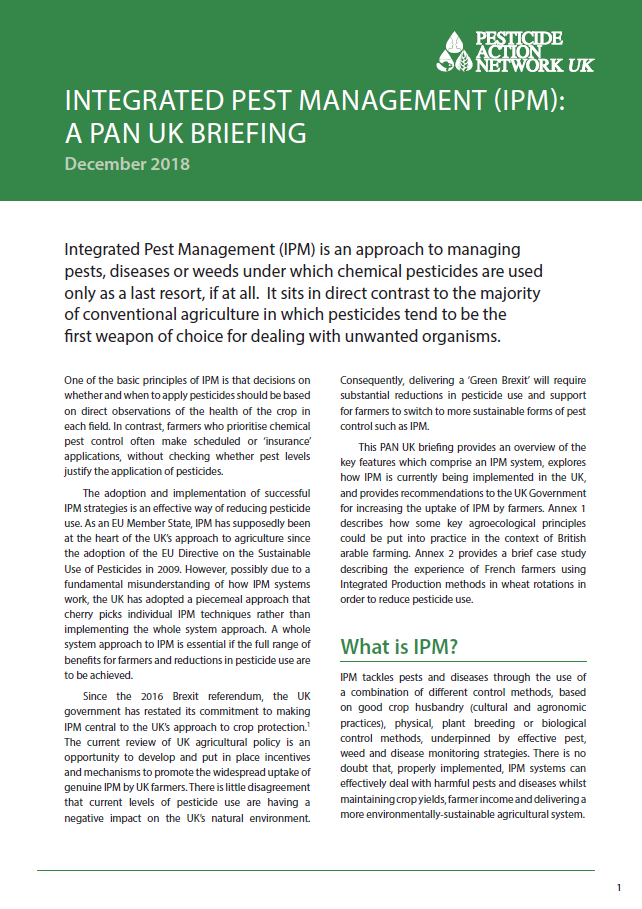Putting Integrated Pest Management at the heart of UK agriculture
Integrated Pest Management (IPM) is an approach to managing pests, diseases or weeds in which chemical pesticides are used only as a last resort, if at all. It sits in direct contrast to the majority of conventional agriculture in which pesticides tend to be the first weapon of choice for dealing with unwanted organisms.
The adoption and implementation of successful IPM strategies is an effective way of reducing pesticide use. IPM has supposedly been at the heart of the UK’s approach to agriculture since 2009. However, the UK has tended to adopt a piecemeal approach that cherry picks individual IPM techniques rather than implementing the whole system approach which is essential if the full range of benefits for farmers and reductions in pesticide use are to be achieved.
Uptake and adoption of comprehensive IPM systems are one of PAN UK’s key recommendations for our post-Brexit future. If, as the government has promised, we are to develop a cleaner, greener and more sustainable system of food production in the UK, then IPM must sit at the heart of it. This will require a major increase in government support to help farmers reduce their pesticide use and transition to IPM. Without this support, UK farming will continue to use high levels of pesticides and the opportunity to change the way we farm will have been missed.
This PAN UK briefing provides an overview of the key features which comprise an IPM system and describes how some key agroecological principles could be put into practice in the context of British farming. It also calls on the UK government to implement the following measures:
- Introduce incentives for farmers to adopt IPM practices
- Create a new independent extension service for research, development and dissemination of IPM techniques
- Facilitate farmer-to-farmer learning on IPM
- Fund the new IPM body through a pesticide tax

